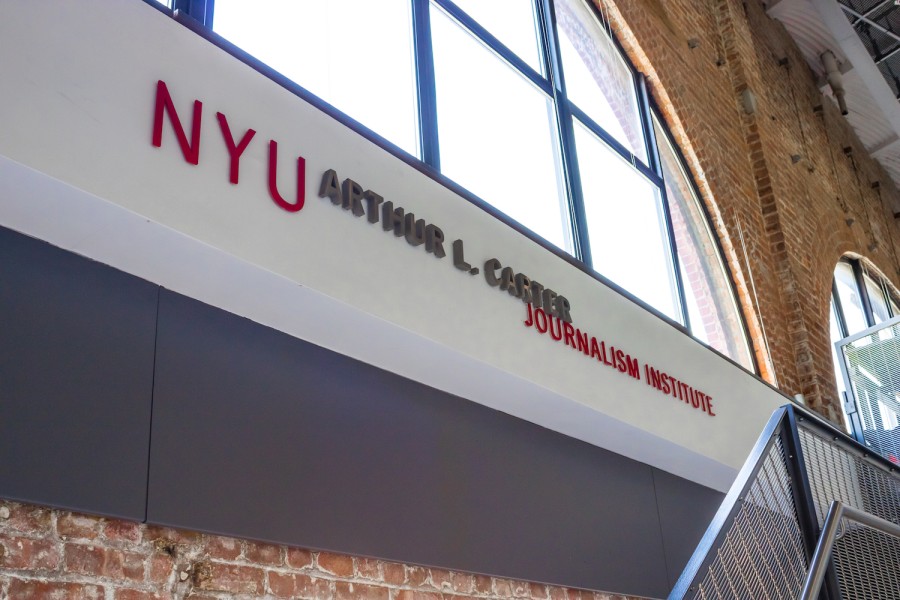Recipient of $12,500 NYU journalism award will report on climate crisis
Adam Willis, a reporter for the local news nonprofit The Baltimore Banner, received NYU’s Matthew Power Literary Reporting Award.
(Gabe Vasconcellos for WSN)
April 25, 2023
NYU’s journalism institute has named Adam Willis, a city government reporter for nonprofit news website The Baltimore Banner, as the ninth recipient of its prestigious Matthew Power Literary Reporting Award, which provides journalists with a $12,500 grant to fund ambitious reporting projects.
At The Baltimore Banner, Willis has extensively covered local government, and reported on the impact of federal pandemic aid on the city of Baltimore and surrounding areas. He has also contributed to The Atlantic, The Guardian and other national publications. In 2020, he was selected as a member of the Report For America program and placed at a local newspaper in North Dakota.
“I think one of the things that narrative journalism allows, in general, is a chance to spend more time on the ground with the people who are affected by issues,” Willis said. “You really get to know individual people and in a way that really brings their experiences to the forefront.”

The Matthew Power Literary Reporting Award, first given by the Arthur L. Carter Journalism Institute in 2015, is named after acclaimed freelance journalist Matthew Power, who died of heat stroke in 2014 while on assignment in Uganda, where he was reporting on a British explorer who was attempting to walk the length of the Nile River. The grant is funded by over 650 donations and is meant to support extensive projects by up-and-coming reporters.
Last year, the award was given to human rights reporter Astha Rajvanshi, who used the grant to write about how the coal mining operations of a company run by billionaire tycoon Gautam Adani, who was once the richest man in India, were displacing members of an Indigenous tribe — and how the tribe was fighting back.
A panel of professional journalists, editors and NYU professors reviews proposals for the award, giving special consideration to those which would parallel Power’s style and approach and perpetuate his legacy. Part of the $12,500 grant is intended to help send journalists to “where the story is,” according to the Carter Journalism Institute’s website. Willis said he planned to use the grant to write about the impact of climate change on the U.S. Midwest.
Ted Conover, an NYU journalism professor who was friends with Power and serves on the panel of judges, said Willis’ proposal was well-suited for the award.
“He has a wonderful idea that he is the perfect person to report,” Conover said. “He fits the profile we’re looking for, which is an early-career journalist or a nonfiction writer who might not otherwise have the opportunity to work on a big project.”
Willis said that he has admired the work of past recipients since he was in college, and began applying six years ago. He added that he is excited to start developing connections with his sources during his yearlong project, and hopes to be on the ground reporting in the next few months.
“I am extremely honored,” said Willis. “These are really big issues. I think it’s very easy for people to kind of get lost in how big or daunting they seem. This kind of work allows you to ask people and understand.”
Contact Ania Keenan at [email protected].























































































































































